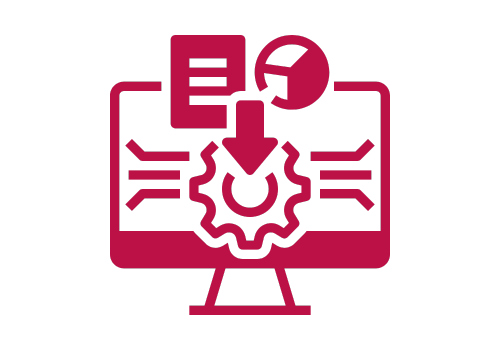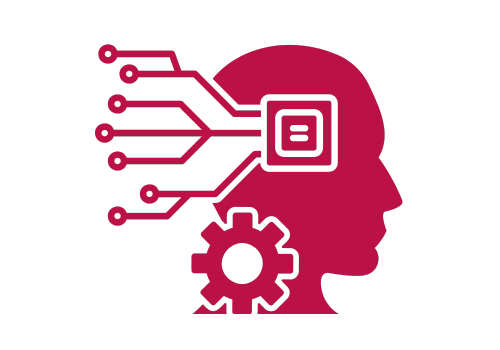Data Document Management
Unlock the Power of Effective Data Documentation!
Why This Training?
In the age of data-driven decision-making, understanding and managing your data documents is more crucial than ever. Effective data document management ensures not just organizational efficiency but also data integrity, consistency, and compliance. Dive into the world of data document management and elevate your organization's data handling capabilities.
Duration: 3 Hours (online / virtual live session)

Who Should Attend?
Data Managers and Analysts looking to streamline data documentation processes.
IT Professionals tasked with maintaining data infrastructure.
IT Professionals tasked with maintaining data infrastructure.
See more
Compliance Officers navigating the data regulatory landscape.
Any professional interested in enhancing their data management skills.
Any professional interested in enhancing their data management skills.

Course Highlights
Grasp the Essentials: Understand the core of what data documents are and their significance in today's data-rich environment.
Creation Best Practices: Learn how to create comprehensive and usable data documents that stand the test of time.
Creation Best Practices: Learn how to create comprehensive and usable data documents that stand the test of time.
See more
Efficient Storage Solutions: Discover how to store data documents, ensuring they are both safe and easily retrievable.
Master Maintenance & Retrieval: Equip yourself with strategies for keeping data documents up-to-date and how to retrieve them swiftly when needed.
Future Trends: Get a glimpse into how AI and other technologies are shaping the future of data document management.
Master Maintenance & Retrieval: Equip yourself with strategies for keeping data documents up-to-date and how to retrieve them swiftly when needed.
Future Trends: Get a glimpse into how AI and other technologies are shaping the future of data document management.

Pre-requisites
Basic understanding of data management principles.
Familiarity with typical business documentation processes.
Familiarity with typical business documentation processes.
Training Materials Needed by Participants
A laptop or tablet with internet access.
Any sample data documents you might have (for practical exercises, optional).
Note-taking materials.
Write your awesome label here.
Training Content
Data Document Management
Session 1: Understanding Data Documents and Their Importance
Introduction: Brief overview of what data document management entails.
What are Data Documents?
- Types: Reports, Data Dictionaries, Data Models, ER Diagrams, Metadata files, etc.
- Difference between data documents and traditional documents.
Importance of Effective Data Document Management:
- Efficiency in data operations.
- Ensuring data integrity and consistency.
- Regulatory and compliance implications.
Session 2: Best Practices in Data Document Creation and Storage
Creating Effective Data Documents:
- Guidelines for effective data documentation.
- Including context: Why, What, and How.
Storing Data Documents:
- Traditional vs. digital storage solutions.
- Benefits of centralized repositories.
- Version control for data documents.
Security and Access Control:
- Ensuring sensitive information protection.
- Role-based access.
Session 3: Maintaining and Retrieving Data Documents
Maintaining Data Documents:
- Periodic review and updates.
- Archiving outdated documents.
- Handling redundant data documents.
Retrieving Data Documents:
- Search capabilities: Tagging and indexing.
- Data catalogs and their benefits.
Wrap-up & Future Trends:
- AI in data document management.
- Integration with data governance frameworks.
WOMEN AI ACADEMY
Women AI Academy is a gender-equality and technology driven learning & development organization
Site Terms & Info
ETHOS AI Training & Consulting GmbH
Weihenstephanerstr.1281673
Munich-Germany
We are driven by the vision of making AI both ethical and accessible to everyone
Copyright © 2024 Brought to you by Ethos ai AI Training & Consultancy GmbH
Ali Hessami is currently the Director of R&D and Innovation at Vega Systems, London, UK. He has an extensive track record in systems assurance and safety, security, sustainability, knowledge assessment/management methodologies. He has a background in the design and development of advanced control systems for business and safety-critical industrial applications.
Hessami represents the UK on the European Committee for Electrotechnical Standardization (CENELEC) & International Electrotechnical Commission (IEC) – safety systems, hardware & software standards committees. He was appointed by CENELEC as convener of several Working Groups for review of EN50128 Safety-Critical Software Standard and update and restructuring of the software, hardware, and system safety standards in CENELEC.
Ali is also a member of Cyber Security Standardisation SGA16, SG24, and WG26 Groups and started and chairs the IEEE Special Interest Group in Humanitarian Technologies and the Systems Council Chapters in the UK and Ireland Section. In 2017 Ali joined the IEEE Standards Association (SA), initially as a committee member for the new landmark IEEE 7000 standard focused on “Addressing Ethical Concerns in System Design.” He was subsequently appointed as the Technical Editor and later the Chair of P7000 working group. In November 2018, he was appointed as the VC and Process Architect of the IEEE’s global Ethics Certification Programme for Autonomous & Intelligent Systems (ECPAIS).
Trish advises and trains organisations internationally on Responsible AI (AI/data ethics, policy, governance), and Corporate Digital Responsibility.
Patricia has 20 years’ experience as a lawyer in data, technology and regulatory/government affairs and is a registered Solicitor in England and Wales, and the Republic of Ireland. She has authored and edited several works on law and regulation, policy, ethics, and AI.
She is an expert advisor on the Ethics Committee to the UK’s Digital Catapult Machine Intelligence Garage working with AI startups, is a Maestro (a title only given to 3 people in the world) and expert advisor “Maestro” on the IEEE’s CertifAIEd (previously known as ECPAIS) ethical certification panel, sits on IEEE’s P7003 (algorithmic bias)/P2247.4 (adaptive instructional systems)/P7010.1 (AI and ESG/UN SDGS) standards programmes, is a ForHumanity Fellow working on Independent Audit of AI Systems, is Chair of the Society for Computers and Law, and is a non-exec director on the Board of iTechlaw and on the Board of Women Leading in AI. Until 2021, Patricia was on the RSA’s online harms advisory panel, whose work contributed to the UK’s Online Safety Bill.
Trish is also a linguist and speaks fluently English, French, and German.
In 2021, Patricia was listed on the 100 Brilliant Women in AI Ethics™ and named on Computer Weekly’s longlist as one of the Most Influential Women in UK Technology in 2021.

